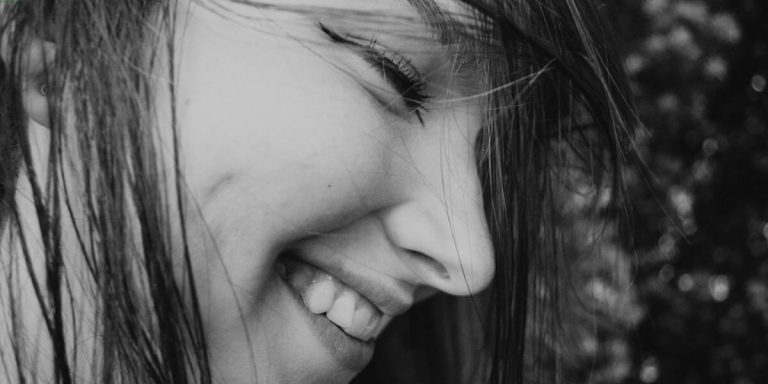Does The Keratin Treatment Cause Hair Loss? A Comprehensive Analysis
Haircare is an intricate field that’s laden with myths and misinformation, one of which revolves around keratin treatments. Many people are left wondering “does the keratin treatment cause hair loss?” This question has become a common concern among many individuals who desire silky-smooth strands but fear losing their luscious locks in the process.
As such, this blog post aims to provide a comprehensive analysis on whether or not these popular salon services could be responsible for cases of hair thinning or balding. We will delve into scientific facts, expert opinions, as well as real-life experiences to get you accurate information about this widespread query related to hair loss treatments.
Did you know?
Though rumored to cause hair loss, the keratin treatment actually strengthens hair and reduces breakage, when applied properly. Its misuse or overuse may however lead to dryness and brittleness that can initiate shedding in some people.
Understanding the Impact of Keratin Treatment on Hair Health
Keratin treatments have been widely embraced as a go-to option for those who desire smooth, frizz-free hair. It’s worth noting that while these services are generally perceived to improve the texture and appearance of your tresses, there have been concerns over whether keratin treatment could potentially contribute to hair loss.
Produced naturally by the human body, keratin plays a crucial role in strengthening our hair and protecting it from external factors such as heat and chemical damage.
During a typical salon-style keratin treatment, professionals coat your hair with artificial liquid-based keratins and then seal it using flat irons or blow dryers. This method yields instant glossy results but may also lead to damaging consequences.
The answer isn’t black-and-white since multiple variables come into play when dealing with individual responses to treatments such as this one. For some people, excessive exposure to high temperatures used during application might compromise their scalp health leading toward occasional shedding post-treatment; however,it doesn’t necessarily mean it causes chronic or severe hair loss.
Recognizing Signs of Hair Loss Post-Keratin Therapy
Bright, frizz-free hair courtesy of keratin treatments may come at a high price for some individuals. Post-treatment, several folks have reported significant hair loss incidents; thus, the question arises: does keratin treatment cause hair loss?
Keratin is a protein that replenishes your damaged and dull locks with its vital qualities to bring back their natural luster. However, problems start when this treatment is overused or applied incorrectly.
Hair shedding becomes noticeable within days after receiving the therapy in certain instances. Some common signs include excessive amounts of strands on your pillowcase upon waking up or clogging up your shower drain excessively during washing sessions.
If you notice an increase in individual loose hairs appearing on clothes throughout the day post-keratin treatment – don’t brush off these concerns lightly! This could be indicative of increased shedding due to potential damage from aggressive chemical agents present in most keratins used commercially today.
On another note though, it’s worth mentioning not everyone can link their current thinning situation directly back solely onto previous salon visits alone without considering genetics aspects first-hand too!
Despite reassuring salon claims about safety standards employed while carrying out such procedures regularly based around hot iron presses combined alongside strong chemicals like formaldehyde (known carcinogen), creating perfect environments conducive towards breakages occurring more noticeably than ever beforehand isn’t just hypothetical chatter but rather observed reality instead now.
Analyzing the Science Behind Keratin-Related Follicular Damage
Keratin treatments have gained massive popularity in recent years due to their ability to straighten hair and provide a glossy sheen. However, the reality is not as straightforward as it appears on shiny pamphlets at your local salon. The key question here is – does keratin treatment cause hair loss?
Let’s dive into the scientific aspects of this issue.
Firstly, it’s important to understand what keratin actually is – Keratin stands behind each strand of our hair acting as a protective protein compound that lends strength and resilience against external damage factors like heat or chemicals. So intuitively, adding more keratin through these treatments should be beneficial for our follicular health, right?
Well unfortunately no; in practice things are often different from theory. The truth lies within how these therapies apply additional keratin onto your scalp.
The first stage involves opening up the cuticle layer using strong chemical compounds involving formaldehyde or its substitutes which can cause significant harm over time.
This process makes room for infused liquid-keratins penetrating deep into each strand thereby altering structure of natural hairs followed by intense heat typically via industrial grade flat irons used during blowouts locking everything back together again giving desired appearance improvement but at potential expense underlying body condition hence linked distressing thinning patterns among users post prolonged exposure sessions possibly turning dream solutions nightmares overnight!
Evaluating Alternative Hair Strengthening Procedures to Keratin
In the quest for silky, shiny hair, many individuals may consider a keratin treatment as their primary solution. Keratin treatments are lauded in beauty circles due to its ability to smoothly coat each strand of hair and provide an unparalleled sheen. However, not everyone is aware that despite these beneficial effects; this procedure could potentially lead to various degrees of hair loss over time.
Keratin’s role in our bodies goes beyond just aesthetics—it’s essential for the structural integrity of our skin and nails. Yet, excessive or incorrect use during salon treatments can weaken follicles and cause more shedding. Thus, it’s crucial to consider alternative treatments in trichology that avoid these negative effects.
Exploring Natural Remedies for Minimizing Hair Breakage and Loss
In the pursuit of healthier hair, natural remedies have always offered a reliable and chemical-free approach. They are easy to use, safe for most people, and often utilize ingredients found in your home or local health store.
Aloe Vera has risen to prominence for its soothing properties. Its potent enzyme content is known to encourage healthy hair growth while curbing breakage resulting from dryness or brittleness. Using Aloe Vera gel directly on the scalp can stimulate increased blood circulation that helps nourish the follicles.
Coconut oil stands as another popular remedy due largely to its rich reserves of fatty acids and antioxidants which help strengthen strands by reducing protein loss during washing thereby minimizing breakages over time.
Assessing Professional Treatments: Balancing Efficacy and Safety
Professional hair strengthening procedures have become the go-to choice for those looking to enhance their locks’ vitality and luster. Beyond Keratin, there are multiple treatments available in current market that promise positive impacts on your mane’s health. Examining these alternatives can give us a comprehensive overview of both their efficacy and safety profile.
Overall, professional treatments aim at combating various hair concerns such as thinning strands, dryness or damage caused by heat styling tools or chemical processes. Their increasing popularity underscores our relentless pursuit of healthy tresses without compromising personal wellbeing.
Let’s delve into some well-known professional hair strengthening methods:
1) Protein Treatments – They fortify the protein structure within each strand making them resilient against breakage.
3) Laser Light Treatments – Scientifically proven method stimulating follicles through low-level laser light exposure.
4) Platelet Rich Plasma (PRP)- PRP uses one’s platelets rich plasma to stimulate new cell growth helping strengthen existing hairs.
Effective Strategies for Preventing Hair Loss After Chemical Treatments
Interestingly enough, a proper keratin treatment in its appropriate form should not induce any form of drastic shedding or thinning. In fact, it’s primarily designed to replenish lost proteins and smoothen out tresses for a glossy finish. However, when performed incorrectly or applied excessively without observing necessary precautions could potentially trigger unwanted damage.
But there’s no need to panic just yet! Even if you’re battling post-treatment fallout right now due to improper practices during your procedure—or even considering undertaking one shortly—there are effective strategies upfront for preventing further harm from occurring after chemical interventions like these.
Ensure qualified professionals handle your locks with utmost care using trusted products. Align each product perfectly according to its instructions. Avoid excessive heat and overuse, as they can turn beneficial treatments into catastrophic incidents leading to:
- Scalp discomfort
- Increased breakage
Considering the present circumstances of 2023, taking these factors seriously is crucial.
The Role of a Balanced Diet in Promoting Scalp and Hair Wellness
Firstly, let’s tackle an important question – does the keratin treatment cause hair loss? The short answer is yes; some individuals may experience thinning or fallout due to the harsh chemicals used in these procedures. However, it largely depends on how often you’re getting these treatments done and whether they are performed by professionals using high-quality products.
Now that we’ve established this connection between keratin treatments and potential hair loss let’s dive into details about supplements for preventing post-treatment damage.
1. **Protein-rich foods:** Your locks basically consist of protein fibers called Keratins (no relation whatsoever with “Keratin Treatments”). Therefore consuming sufficient amounts of eggs, lean meats like chicken or turkey can strengthen strands from their roots.
2. **Iron-enriched dishes:** Iron deficiency triggers excessive shedding resulting eventually in visible bald patches across your scalp region. Leafy greens provide ample iron count required to reinforce follical strength post-keratin application.
Tailored Care Routines: Choosing Gentle Products Post-Treatment
After undergoing a keratin treatment, it’s paramount to cater your hair care routine accordingly. This proactive approach not only ensures the longevity of the chemical treatment but also helps minimize potential damage and reduce hair loss.
Begin personalized post-treatment routines by selecting gentle products tailored for chemically treated hair. Keep these pointers in mind:
1) Use Sulfate-Free Shampoos: The daily shampooing regimen could lead you towards severe shed-offs after getting a Keratin Treatment if practiced without caution. Swap into using sulfate-free shampoos that have less harsh ingredients – aiding in retaining moisture while providing necessary cleanliness.
2) Nurture Your Hair With Conditioners: Hydrating conditioners fostered with protein content can nourish processed tresses effectively, reducing their susceptibility towards breakage. Regular conditioning replenishes lost nutrients and improves elasticity implying lesser instances of brittleness or inflammation thereby preventing further deterioration.
3) Limit Heat Exposure: Excessive heat styling tools like flat irons or blow dryers can cause significant harm by stripping off essential minerals from our hairs leading them prone to excessive fall-outs post Keratin treatments—moderate their usage ensuring minimal contact against high temperatures and keeping frizziness at bay.
Conclusion
In conclusion, does the keratin treatment cause hair loss? Not necessarily. But it’s important to remember that every individual is unique – what works wonders for one might not be ideal for another.
Always consult with a trusted stylist or healthcare provider before embarking on any new treatment regimen, and if you notice significant hair thinning or shedding post-treatment, don’t hesitate to seek professional advice.
Want more insights into coping with hair loss? We invite you to browse our website where we delve deeper into this topic and offer myriad solutions under ‘Hair Loss Treatments’. From understanding underlying causes of alopecia to exploring cutting-edge therapies in trichology – there’s much left unexplored!
You’ll come away equipped with valuable knowledge enabling better decisions about your crowning glory.







